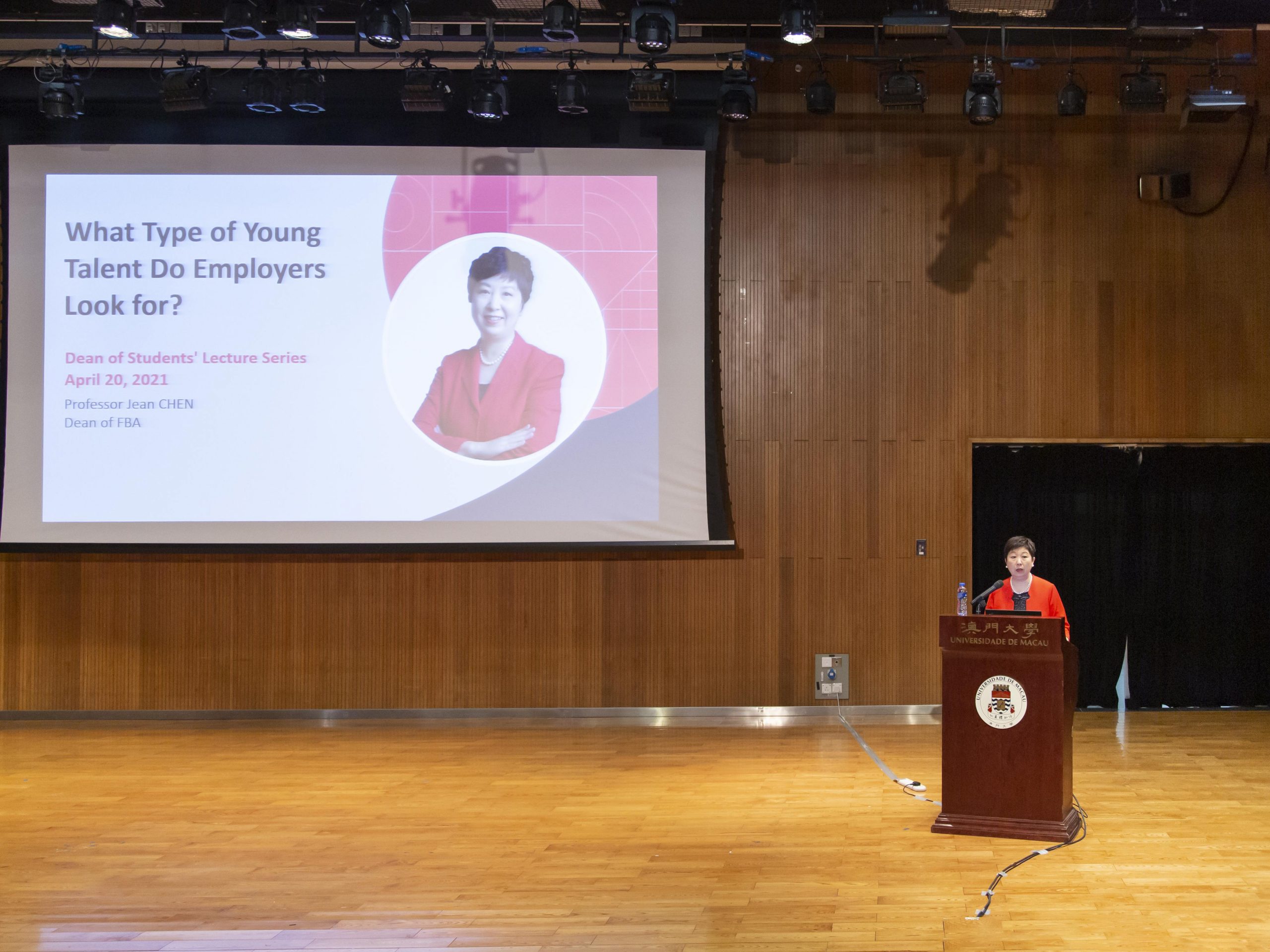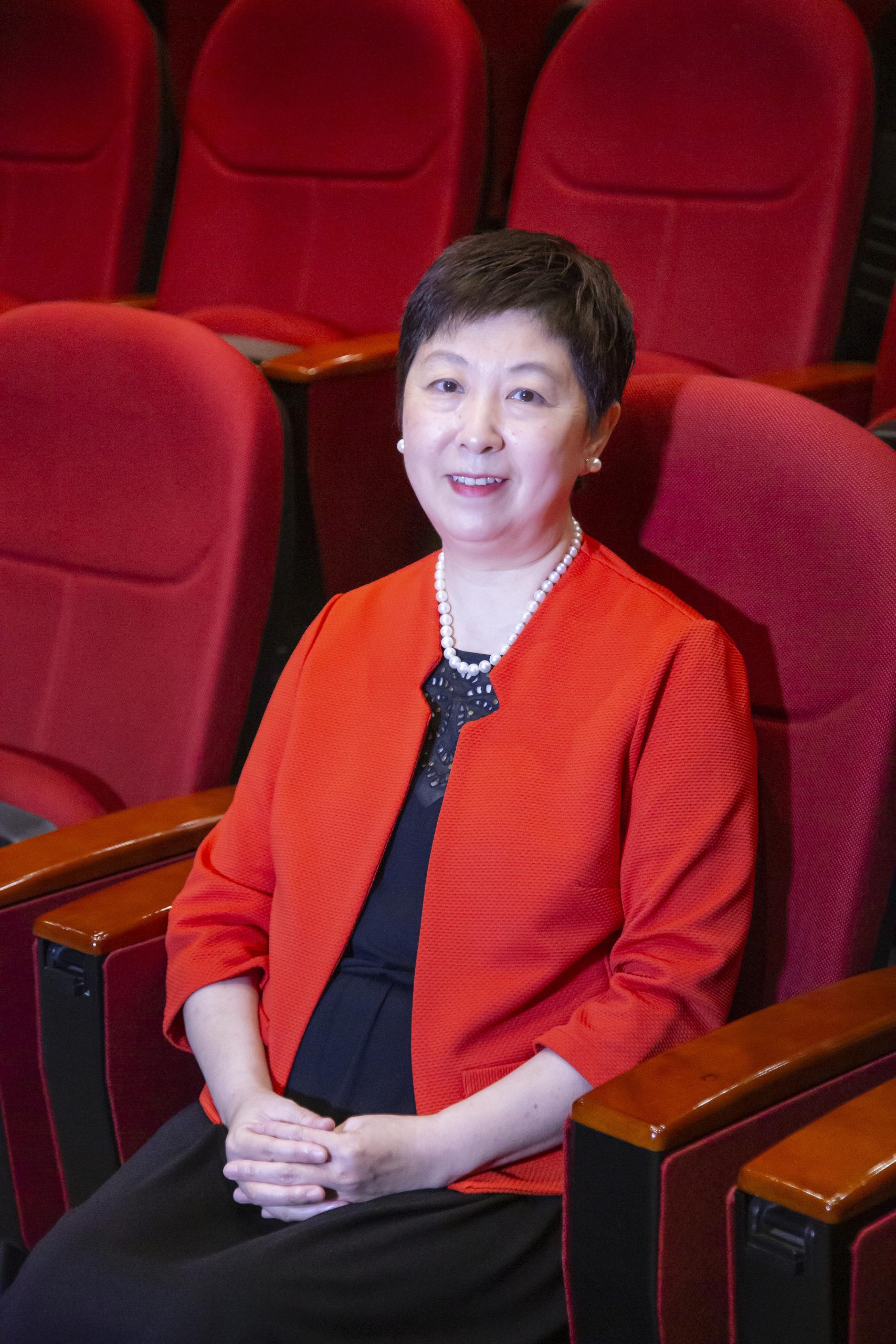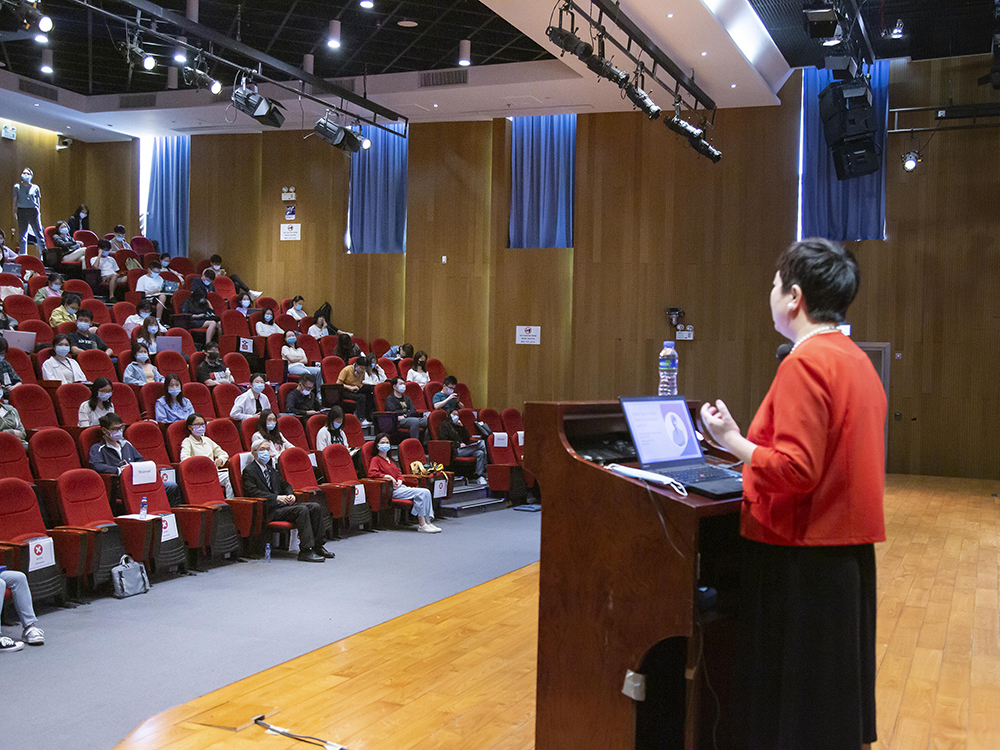Are you at a loss about your career path? In a recent lecture about career planning, Prof Jean Chen, dean of the Faculty of Business Administration of the University of Macau (UM), offered this piece of advice: ‘Employers look for general competencies, adaptability, and motivation in potential employees. Therefore, university students should develop interdisciplinary knowledge, self-learning ability to adapt to new environments, as well as soft skills.’
Interdisciplinary Skills in Great Demand
Before joining UM in 2019, Prof Chen had garnered almost three decades’ worth of experience in higher education in the United Kingdom. She was the executive dean of the International Business School of Xi’an Jiaotong-Liverpool University, founding head of the Southampton Business School at the University of Southampton, and the vice president and chief executive of Surrey International Institute at the University of Surrey.
According to survey data, job candidates who have hands-on experience in multiple fields and strong expertise in a particular area, are the most sought-after, claims Prof Chen. ‘Apart from outstanding work performance, flexibility, optimism, and strong self-motivation are also key qualities of a good employee.’
Getting Started with Career Planning
Prof Chen says students should build professional competence and motivate themselves to keep learning. ‘Some people don’t have a clear plan when choosing a degree and university, and have no idea about career planning. Students should explore a broad range of interests, and delve deep into one or two to pave the way for future career.’
She recommends three ways to learn effectively: 1) Moving from passive to active, research-oriented learning; 2) Steadily developing an interest in certain fields; 3) Strengthening practical skills. Prof Chen adds that employers do not desire applicants who have academic knowledge but cannot apply it at work quickly, so students must conscientiously put their skills gained in classrooms and labs into practical activities to reduce the gap between theory and practice. ‘You have to prove to potential employers that you are good at problem solving in a real work environment which is affected by multiple factors.’
Reflecting from Real World Need
Job applicants also need good communications skills, in addition to academic qualifications. In Prof Chen’s view, students should participate in extra-curricular activities to develop soft skills, which are very useful for job interviews. Students also need to identify their personality types, strengths, and weaknesses, and learn to put themselves in others’ shoes.
Many students are eager to complete internships to make their CVs stand out, but are unsure about whether their internships would actually boost their employability. Prof Chen says that when students begin making career plans, they should identify their employability skills. She explains: ‘For successful career planning, you must know your strengths, predict the types of skills in high demand in the next five to ten years, and evaluate the supply of, and demand for, your skills.’
Improving Your EQ
University education primarily focuses on building academic skills, but according to Prof Chen, students must also ‘learn how to learn’ to excel in the rapidly changing job market. Students must embrace lifelong learning, because many of their current skills may become obsolete in the near future.
‘Even among people who have made major career changes, some would assume that their knowledge acquired from previous jobs would fit their current roles. Students have to keep up with the times by learning how to adapt,’ says Prof Chen. ‘To prepare themselves for the workforce, students should also improve their emotional quotient, or EQ, to handle pressure in the workplace.’
Source: My UM e-version

Prof Jean Chen offers advice on career planning

Prof Jean Chen shares her insights on career planning with students in the Dean of Students’ Lecture Series – What Type of Young Talent Do Employers Look for?

Prof Jean Chen encourages students to develop the ability to acquire new knowledge

Dean of Students Paul Pang (left) presents a souvenir to Prof Jean Chen
